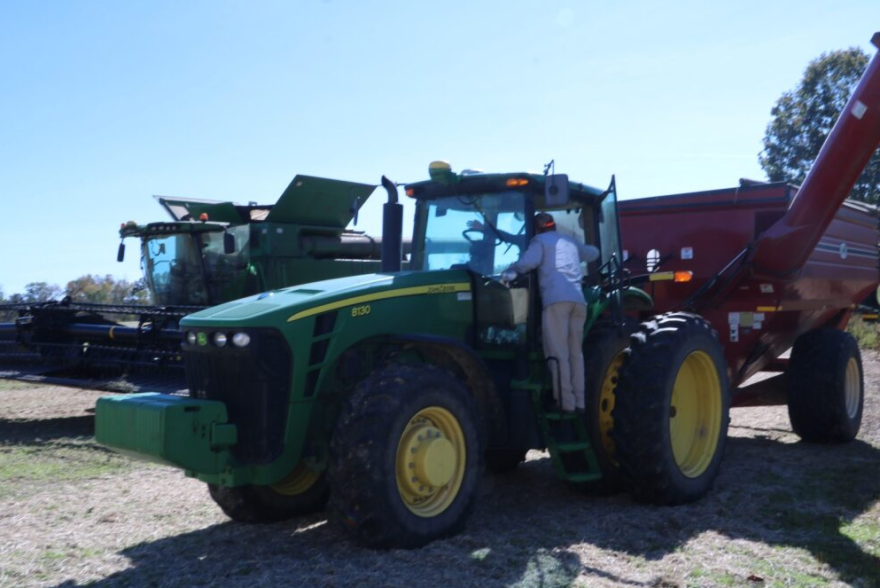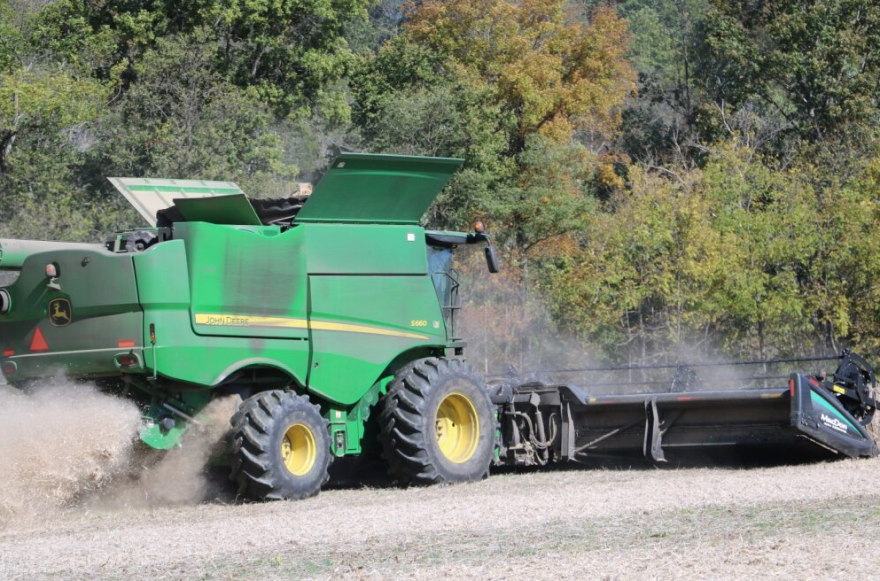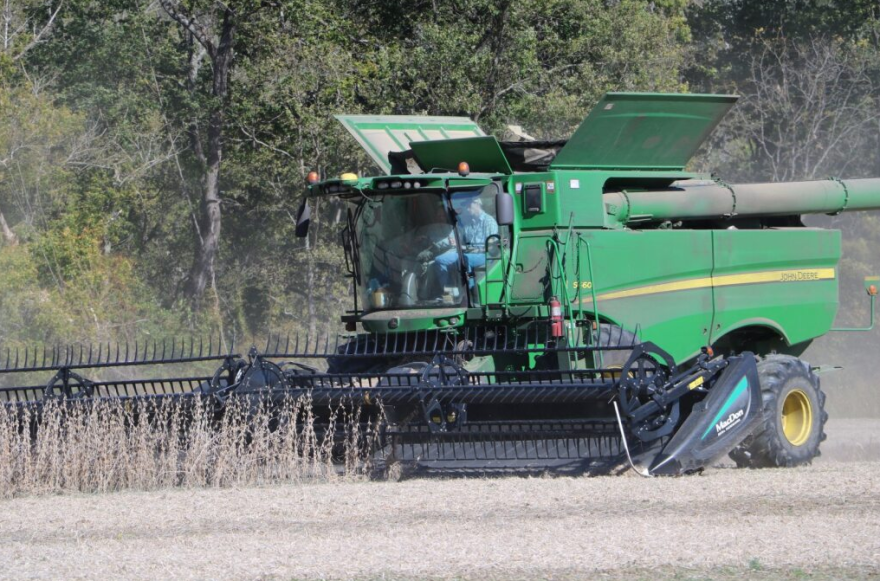As this year’s harvest comes to a close, some farmers are left wondering if they made the right career choice. This comes as the soybean yield has nowhere to go and the possible derailing of a just recently stabilized American beef market.
Most cash crops in Kentucky have already been harvested, all farmers must do now is find someone to sell it to, something farmers said seems to have gotten increasingly difficult in recent years.

Steven Bach farms cattle, soy beans, and corn in Bath County. He said a variety of factors - the price of land, equipment to farm it, and an unstable overseas agriculture market - make it difficult for small farmers to keep doing business.
“The input costs have tripled while the commodity prices, the beef prices, all that has roughly stayed the same. We got a lot of issues to solve on that, unless we do want to be getting our food from somewhere else,” Bach said.
One of the biggest issues is overproduction. American farmers tend to grow more than the domestic market needs because, historically, they sell crops overseas. China alone buys upwards of 46 percent of the American soybean supply every year. That accounts for more than $12 billion.
However, tariffs imposed by the Trump administration have stifled soybean sales and incentivized investors operating out of China to buy cheaper beans from producers in South America.
“Basically, the Chinese on the world market have discounted our bean down to about $10 a bushel when they should be about $12 on the world market,” Bach said. “If those beans are not being exported, we have to find something to do with them. There is just not enough to do with domestically to eat them all up.”

Bach said other international factors are a cause of concern for American farmers. Recently the Trump administration negotiated a program worth up to $20 billion that could include a currency swap and purchases of Argentine dollar bonds to stabilize Argentina’s economy and currency. Bach said a result of the deal will likely bring cheaper Argentinian beef into US grocery stores.
“The main push of that, is to lower beef prices and lower prices in the store. If you look at how high prices are in the store, as high as they are, they are probably where they need to be for producers to be profitable, cause for a long time the livestock side of it has been suffering. And now really is one of the first times producers have really been able to see any value to their products,” Bach said.
The effects of these actions will not immediately show in the global market. It’s likely it could take upwards of a year to see how beef cattle prices change.
Matthew Meadows runs River Farm Center, a retail agriculture business in Tollesboro, Kentucky, that sells fertilizer, seed, and frozen beef. He also farms crops. Meadows said he doesn’t see the Argentina deal hurting the market too badly.
“I do not think importing a lot of stuff from Argentina is going to crash our domestic markets here, because we are already importing some anyway, and have been for a long time,” Meadows said. “You know, the true mess is with the market, it is just so volatile and fluctuates a lot here lately, and just on the basis of a few words.”
Meadows said beef cattle were on pace to sell well this year but in August talks of importing began and damaged market prices before any real change had even taken place.
Bath County farmer Tommy Heheh said he thinks the government could help protect farmers.
“They need to get a hold of fuel prices and fertilizer prices. Stuff like that that we pay taxes on and wring out our profit in the field. Once they do that everything else will come down too,” Heheh said.
Steven Bach on the other hand said he wishes the government would stay out of it and let farmers operate in a free market. He said there is plenty of room in the industry for people to succeed but notes the initial startup and the risks of the business have swayed young new farmers away from the industry. According to the 2022 Census of Agriculture, the average age of a U.S. farmer is 58, a number that only continues to rise.
“They are really truthfully kind of scary times, there will be a lot of people that go financially bankrupt this year. There is going to be a lot,” Bach said. “We’ve had basically two bad crop years in a row, abnormally low commodity prices, we’ve had droughts in most of the mid-west south yields not there in a lot of places. A lot of people are going to struggle to be in business next year.”
Matthew Meadows echoed this statement, acknowledging an uncertain future for farming in America.
“In a retail ag business, we are banking on agriculture being and continuing to be an important part of what we got going on, but it is scary for a young person to get in because there absolutely are no guarantees,” Meadows said. “I hope our leadership realizes how important agriculture is. I wish that it would be more certain where you could bank on being able to make a good living, but it is just so volatile right now.”
Meadows said he and other farmers who have been at it for decades should be able to ride out the storm, but he worries about the future for young farmers who don’t have the same equity and experience.

